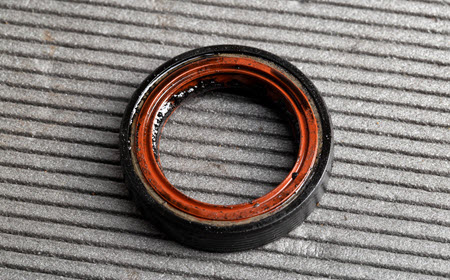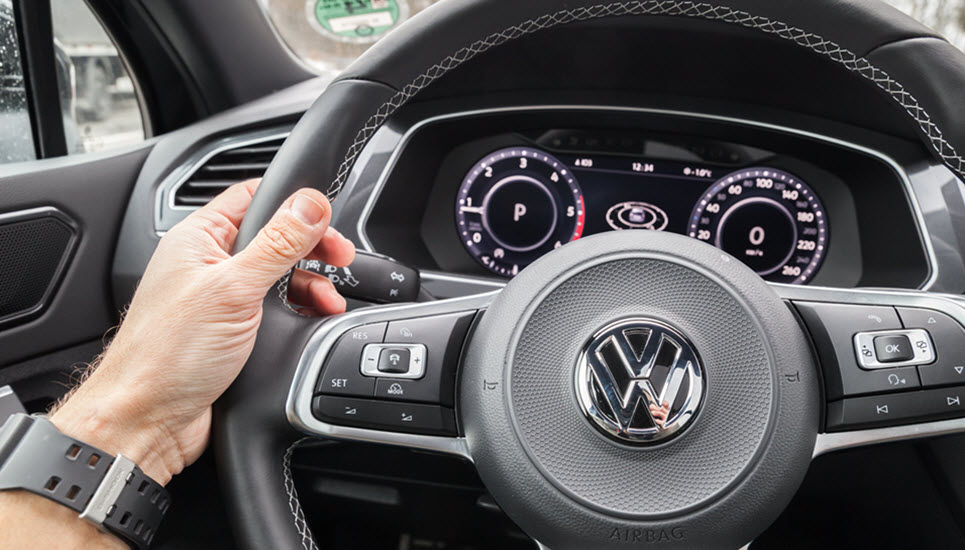Camshaft seal is a simple yet vital device designed to prevent oil leakage from the engine’s cylinder head, where the camshaft resides. This small seal is strategically positioned to keep the oil within the engine, thus maintaining proper lubrication and preventing potential damage due to oil leakage.
The camshaft itself is an important engine component responsible for controlling the opening and closing of the valves. As the camshaft rotates, it pushes against the valves via a series of lobes, allowing for the precise timing of the engine’s intake and exhaust strokes. This relationship between the camshaft and valves is what powers your VW down the road.
How the Camshaft Seal Relates to Other Parts
The camshaft doesn’t work in isolation; it collaborates with other engine components to ensure optimal performance. One of its key partners in crime is the crankshaft seal. The crankshaft seal, located at the bottom of the engine, prevents oil from leaking out around the crankshaft. Together, these seals create a barrier that maintains a controlled environment within the engine, where oil lubricates the moving parts and allows them to work harmoniously.
Furthermore, the camshaft seal’s proper functioning is vital for the engine’s overall efficiency. If the seal becomes compromised and oil starts leaking, it can lead to inadequate lubrication of the camshaft, resulting in friction and wear. This not only affects the engine’s performance but can also lead to costly repairs down the line.
Reasons your VW’s Camshaft Seal Fails
Here are some common reasons why camshaft seals in Volkswagen vehicles might fail:
- Oil Quality: The quality of the engine oil used plays a significant role in the longevity of seals. If the engine oil isn’t changed at regular intervals, or if low-quality or incorrect oil is used, it can degrade the seal material and compromise its effectiveness.
- Age and Mileage: Camshaft seals, like any other rubber or plastic component, deteriorate with age and usage. The constant exposure to high temperatures, engine vibrations, and the friction generated by the rotating camshaft can cause the seal material to become brittle and eventually crack or break.
- Improper Installation: During repairs or maintenance, if the seal is not installed properly, it can result in an imperfect seal. This might allow oil to seep through, leading to leaks. Additionally, using incorrect tools or excessive force during installation can damage the seal or its housing, causing premature failure.
- Heat and Pressure: The engine compartment is a hot and high-pressure environment. Over time, the combination of heat and pressure can cause the seal material to expand and contract repeatedly, leading to wear and eventual failure. This is especially true if the engine frequently operates at high temperatures, such as during stop-and-go traffic or when towing heavy loads.
- Contaminants: Dust, debris, and engine grime can accumulate around the camshaft seal area. Over time, these contaminants can work their way into the seal and cause damage.
- Engine Misalignment: If the engine experiences severe misalignment or excessive vibrations due to mechanical issues or accidents, it can put extra stress on the camshaft seal. This stress can lead to premature wear and failure of the seal.
- Environmental Factors: Extreme weather conditions, such as extremely high temperatures, can accelerate the breakdown of the seal material. If you frequently drive in areas with harsh climates, it can contribute to the premature failure of the seal.
How to Know the Camshaft Seal is Failing
Detecting a failing camshaft seal in your Volkswagen requires keen observation and attention to potential signs of trouble. Look out for oil leaks around the camshaft area. As the seal deteriorates, it allows engine oil to escape, leading to telltale stains that are often visible as spots on your driveway or under the engine.
Another way you can know that the seals are failing is when you pay attention to changes in engine performance. A failing seal will disrupt lubrication and increase friction because there won’t be enough oil in circulation to lubricate moving parts.
Vigilance is key! Promptly addressing these symptoms with the help of a qualified mechanic can prevent further damage and ensure your Volkswagen engine remains in top condition.
Rev Up Your Engine’s Performance with Quality Camshaft Seal Repairs
At Franklin Automotive Performance,  we understand the importance of a well-functioning Volkswagen engine, and we’re here to help. Serving the communities of Hoover, Homewood, Vestavia, Mountain Brook, Pelham, Trussville, and Birmingham, AL, we are your trusted destination for expert camshaft seal repairs. Our skilled technicians have the know-how to diagnose and address VW seal issues efficiently, preventing further complications down the road. Don’t wait until leaks and performance woes worsen. Book an appointment with us now!
we understand the importance of a well-functioning Volkswagen engine, and we’re here to help. Serving the communities of Hoover, Homewood, Vestavia, Mountain Brook, Pelham, Trussville, and Birmingham, AL, we are your trusted destination for expert camshaft seal repairs. Our skilled technicians have the know-how to diagnose and address VW seal issues efficiently, preventing further complications down the road. Don’t wait until leaks and performance woes worsen. Book an appointment with us now!
* Man Driving Volkswagen Tiguan Car image credit goes to: eugenesergeev.
 Mon – Fri: 07:00 AM – 05:30 PM
Mon – Fri: 07:00 AM – 05:30 PM 2880 Acton Road Suite A Birmingham, AL 35243
2880 Acton Road Suite A Birmingham, AL 35243 (205) 380-2884
(205) 380-2884
